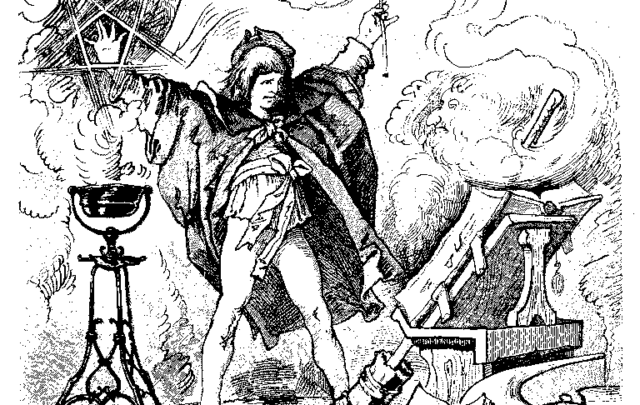Translated from the original Spanish by Jane K. Brundage
This excerpt is from the final chapter of Sirio López Velasco’s book “Contribuição à Teoria da Democracia. Uma perspectiva ecomunitarista” | “Contribution to the Theory of Democracy, an E-communitarian Perspective” (available only in Portuguese). Another excerpt, E-communitarian Democracy: What Is It? — was published earlier in Resilience.org [https://www.resilience.org/stories/2020-08-10/e-communitarian-democracy-what-is-it/].
Beyond the spheres of ecological production-distribution-consumption, e-communitarian democracy (based fundamentally on direct democracy, but incorporating participatory and representative forms as well) both needs and will constantly build a rich network of provisional or long-lasting social organizations. Although many areas can be addressed simultaneously in one and/or another activity, they will have a very different character, interaction and functioning in light of their mission, whether it be, for example, of a more educational, health, environmental, cultural, sports, or recreational nature, etc. Thus, we see the transformed and renewed survival of many existing social and/or non-governmental organizations (which will have overcome any current digression linking them to financial or self-serving interests or lobbies, etc.) while many others will arise that the community itself will later judge worthy of remaining or dying.
However, the permanence of the current political parties does not appear as an inherent need of e-communitarianism. This is because once the class division has been overcome the rich human diversity can be conveyed through the social organizations and information technology without the need for the Parties in their current form. In the historical period of transition toward e-communitarianism, we consider that each country (as long as countries exist) will decide whether this party extinction will take place in an evolution that can go from multi-partyism to provisional mono-partyism, or whether it will take place in direct substitution from currently existing multi-partyism or single-partyism.
Now, we consider that beyond the Parties and NGOs (here, the wheat will have to be separated from the chaff, as many gamble within capitalist rules and are instruments of survival, while still other groups of enlivened individuals pursue the good life), reality has already put on the table the citizen organizational “network”. In a network (sometimes created to face a specific socio-environmental issue):
a) There is a free meeting of people based on a convergence of values and objectives.
b) Each member maintains their autonomy of thought-action and is free to enter/exit to/from the network.
c) Each member is only part of the network to the extent that they effectively participate in it.
d) Each member is co-responsible for the action of the network.
e) Decisions do not obey a central power but proceed from the bottom up and in a decentralized way.
f) Communication is horizontal and free between members of the network; and outside the network for issues decided by consensus.
g) The network admits without restriction the creation of sub-networks by type or modality of action.
h) The network reproduces itself, expanding or transforming without obstacles; thus, by establishing a new connection, each node helps this self-reproductive behavior;
i) The network does not accept permanent bosses, but provisional-rotating leaders; and
j) The network is guided by the principle of solidarity between its members and outsiders.
The networks today demonstrate that “political” activity is greater than party politics, in its Greek meaning of “organization of the city-state at the hands of all citizens.” In an e-communitarian democracy, all people (say, from the age of 11, which is the age at which, according to Piaget, formal linguistic operations and the higher phase of morality reach maturity) are actively involved in deliberations and decisions — preferably directly, or at least in a participatory manner.
The Question of Leaders and Identification with the Oppressor
From an e-communitarian perspective, we do not deny individual differences in terms of initiative, courage, organizing capacity, creativity, manual skills, etc. Hence, community action will always have to recognize the skills that give rise to and justify the leadership of certain people. However, the three fundamental norms of ethics and the profile of e-communitarianism suggest that these skills extend to all individuals in one sphere or another, such that, at least in one of those spheres, every person in turn takes a leadership role. (Let us recall that the three fundamental norms of Ethics — deduced from the deep grammar of the question that establishes it, namely, What should I do? — oblige us, respectively, to struggle to guarantee our individual freedom of decision, to realize this freedom in the search for consensus with other people, and to preserve and regenerate the health of human and non-human nature).
+Translator’s note: A literal translation of the Spanish is ‘Introjection of the Oppressor’. Introjection is a technical psychoanalytic term meaning ‘internalization’. In English, introductory psychology texts often use the phrase ‘identification with’. The classic example is the prisoner suffering a jailer’s harsh exercise of authority who then proceeds to impose the same harsh authority over fellow prisoners.
We had the opportunity to witness such an identification in the personage of the President of a Neighborhood Association, in Brazil. The headquarters of said association was erected in the neighborhood through the efforts of several neighbors, the collaboration of university students and the unions of a University. The building was not only to give shelter to its diverse association tasks, but also to welcome the neediest families in case of floods. Well, shortly after the headquarters was completed, the President began to decide various issues by herself — without any consultation with the community (according to the principle, “I am the leader, and that is why I do what I want”). The issues ranged from the distribution of clothes and food, to negotiations with the authorities, to the reception of needy families at the headquarters. She ended up renting the headquarters to religious organizations a few days a week. Finally, when some university students and neighbors questioned her about her behavior, she said that those who had helped the neighborhood wanted to take possession of it. She ended up signing on to a rightwing Party that had done nothing for the neighborhood, and she acted based on the electoral interests of said party. Luckily, in reaction to these successive absurdities, in the first election scheduled by the pre-established calendar, the Neighborhood Association changed its President to someone who maintained the spirit of democratic and supportive community work, as desired by the e-communitarian project.
From an e-communitarian perspective, the stance of “leading by obeying” should also prevail in political parties, while they exist, and in any other current or future social or political organization.
Translator’s note: The phrase “leading by obeying” arises in the context of the Zapatista model for self-governance. Readers unfamiliar with the model can appreciate this description of Zapatista governing practices [translated from the Spanish]:
Zapatismo never tires of repeating that the fundamentals of its strategy of struggle must not be sought in its speeches and statements, but in its daily practices. The creation and subsequent consolidation of the Juntas de Buen Gobierno [Boards of Good Governance] is no exception. As regional spaces of popular self-government, they are made up of one or two rotating delegates from each Autonomous Council, which is the collective authority designated by the communities that make up each of the 30 Autonomous Municipalities in Rebellion in the state of Chiapas [Mexico]. The appointment of authorities is made [by consensus] in a [People’s] Assembly called in each community or town, with the community itself giving the order, or resolution [also arrived at by consensus], and placing the resolution in the hands of the group of designated persons, who obey the instructions emanating from that democratic space. In the event of non-compliance with the mandate, the instructions can be revoked. Source: The Zapatista Rebellion, Hernán Ouviña, Rebelión, January 13, 2020.
Teaser photo credit: Zapatista point towards Palenque (2010) By Ljuba brank at Slovenian Wikipedia, CC BY-SA 3.0, https://commons.wikimedia.org/w/index.php?curid=31071399





